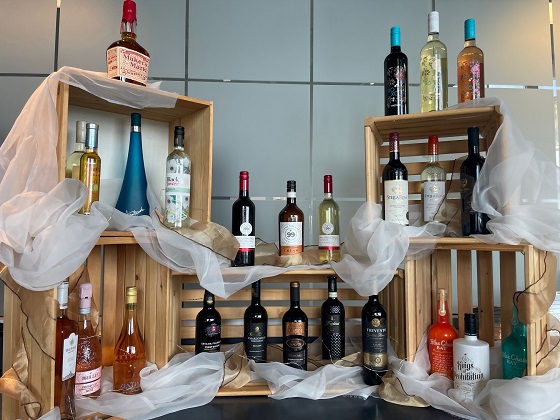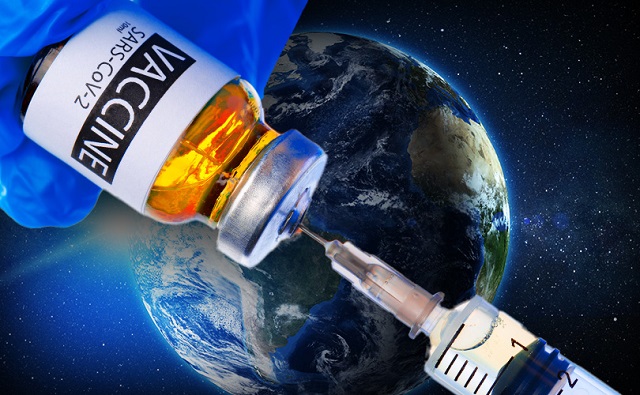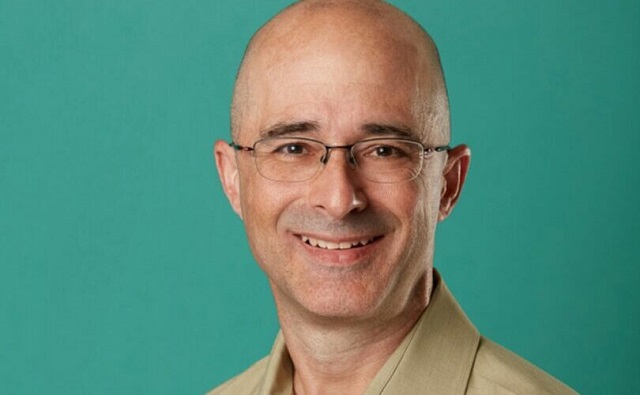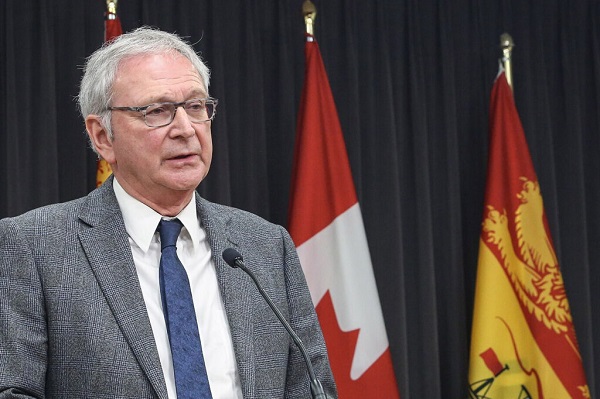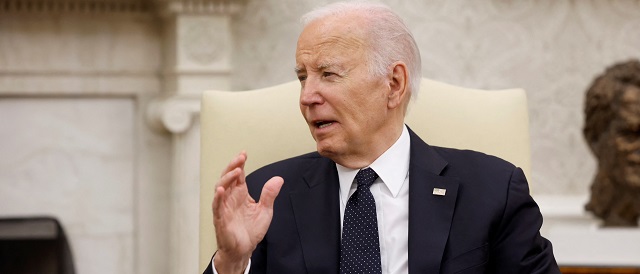Uncategorized
As markets swoon, finance chiefs urge US, China to cool it

NUSA DUA, Indonesia — The heads of the World Bank and IMF appealed Thursday to the U.S. and China to cool their dispute over technology policy and play by world trade rules, as tumbling share prices drove home potential perils from a clash between the world’s two biggest economies.
Global economic growth is slowing but remains strong, Christine Lagarde, managing director of the International Monetary Fund, said on the sidelines of the IMF-World Bank annual meeting, being held this week on the Indonesian island of Bali.
Countries are mostly in a “strong position,” she said, “which is why we believe we are not seeing what is referred to as ‘contagion.'”
But the gyrations that rocked Wall Street the day before and Asia and Europe on Thursday, taking the Shanghai Composite index down 5.2
“It’s the combination of the two that is probably showing some of the tensions that we see in terms of indices, short-term indicators as well as possibly market volatility,” Lagarde said.
The U.S. and Chinese exchanges of penalty tariffs in their dispute isn’t helping, she said.
Her advice was threefold: “De-escalate. Fix the system. Don’t break it.”
She acknowledged that the World Trade Organization, based in Geneva, has made scant headway in recent years toward a global agreement on trade rules that can address issues like complaints over Chinese policies U.S. President Donald Trump says unfairly extract advanced technologies and put foreign companies at a disadvantage in a quest to dominate certain industries.
“Our strong recommendation is to escalate work for a world trade system that is stronger, that is fairer and is fit for the purpose,” she said in opening remarks.
Somewhat obliquely, she said policies aimed toward an excessively “dominant position” were not compatible with free and fair trade.
The IMF has downgraded its forecast for global economic growth to 3.7
World Bank President Jim Yong Kim said the World Bank is working with developing countries to brace for a further deterioration.
“Trade is very critical because that is what has lifted people out of extreme poverty,” Kim said. “I am a globalist. That is my job. That is our only chance of ending extreme poverty. We need more trade not less trade,” he said.
Kim said the World Bank has launched a “human capital index” to help rank countries by the level of their investments in such areas as education and health care.
Policies to build such human capital are among the “smartest investments countries can make,” he said.
He praised host country Indonesia, a democratic, Muslim-majority country of 260 million, for fostering strong growth but noted there was much room for improvement. The country is ranked 87th of 150 countries in the list.
Indonesia has endured a slew of disasters in recent months. Before dawn on Thursday, an earthquake collapsed homes on Indonesia’s Java island, killing at least three people just two weeks after a major quake and tsunami disaster in a central region of the archipelago killed more than 2,000 people and left perhaps thousands more buried deeply in mud.
Thursday’s magnitude 6.0 quake offshore north of Bali shook the area where the IMF-World Bank delegates are meeting, but there were no signs of significant damage.
The annual financial meetings take place at a time of growing concern over trends other than trade, such as moves to raise borrowing costs in the U.S. and some other regions to help cool growth and keep inflation in check. Rising interest rates are drawing investment flows out of emerging markets in Asia and Latin America at a time when growth in their exports is likely to slow.
Argentina and Pakistan, Venezuela and Zimbabwe are among countries grappling with crises. Concerns are growing, also, over slowing growth in China and rising debts among some developing countries resulting from projects associated with Beijing’s “Belt and Road Initiative” to develop ports, roads and other infrastructure.
Lagarde said the IMF will send a team to Pakistan in the coming weeks after a meeting with its finance minister, Asad Umar, in which he requested emergency bailout loans.
The IMF chief did not say how much Umar had requested. Analysts say Pakistan is seeking $8 billion in loans to deal with a balance of payments crisis. Pakistan’s currency plunged by around 7
Asked whether IMF help might amount to a “bailout” for Chinese loans, Lagarde said any such help would have to be completely transparent.
“In whatever work we do we need a complete understanding and complete transparency about the nature of a debt that is bearing on a country,” she said.
The annual summit for global finance brings together central bankers and finance ministers, development experts and civil society groups from across the globe.
Bali has suffered terrorist bombings in the past, and the event was being held amid tight security. A convoy of armed personnel carriers was lined up alongside a beach path and access to the area was tightly controlled.
Still, about a dozen activists concerned with land grabs and other issues sometimes associated with World Bank-sponsored projects staged a brief, peaceful protest over the cancellation by local authorities of a conference they were to hold in the nearby city of Denpasar.
“If they don’t want to ever hear our voices, what kinds of projects are we expecting?” said Joan Salvador, a member of a Philippine women’s group.
Those involved had badges allowing them to enter the tightly guarded venue, and an IMF official said she would convey their concerns “to the highest levels.”
___
Associated Press journalist Hau Dinh contributed to this report.
Elaine Kurtenbach, The Associated Press
Uncategorized
RCMP recruitment failure has Alberta advocacy group calling for Provincial Police Service

News release from Free Alberta Strategy (A Strong And Sovereign Alberta Within Canada)
“Make no mistake, we are paying for these services that we aren’t receiving. Alberta’s taxpayers are paying tens of millions of dollars for nearly 400 vacant RCMP officer positions – for boots that are not on the ground.”
A recent report from the Royal Canadian Mounted Police (RCMP)’s independent Management Advisory Board had findings that are nothing short of alarming:
“Federal policing has now arrived at a critical juncture of its sustainability, which present risks for the national security and safety of Canada, its people, and its interests,” says the report.
After over a year of diligent study, the Board has been tirelessly firing off flares, signalling to all who will listen: the very foundation of our national public safety apparatus may be at risk of faltering.
This is doubly problematic because, as you well know, the RCMP is also responsible for boots-on-the-ground policing in large parts of the country, including many rural and remote areas – including in Alberta.
Rural crime has been a longstanding issue in Alberta, and social disorder continues to make headlines nightly.
Alberta Minister of Public Safety, Mike Ellis, took to social media platform X (formerly known as Twitter) to express his opinion:
“The independent report finds the RCMP has struggled in recent years to recruit and retain regular members, a problem that’s particularly acute in federal policing. This is not about the hard-working men and women on the frontline: they are doing everything they can. The reality is the RCMP do not have enough officers to police communities in Canada effectively.”
Ellis has been ahead of this story for months now.
In March, Ellis stated that:
“… on average, Alberta has an RCMP officer vacancy rate of 20 per cent. This means that Alberta is only being served by 1,522 of the 1,911 RCMP officers that the federal government has authorized for Alberta.”
“Make no mistake, we are paying for these services that we aren’t receiving. Alberta’s taxpayers are paying tens of millions of dollars for nearly 400 vacant RCMP officer positions – for boots that are not on the ground.”
The consequences of this capacity crisis are far-reaching.
Not only does it jeopardize the safety of Albertans, but it also undermines the credibility of Canada’s federal police force on the international stage.
With limited resources and personnel, the RCMP’s ability to address pressing national and global security concerns is severely compromised.
The Management Advisory Board, created in 2019 by the federal government to provide external advice to the RCMP commissioner, set up a task force in the fall of 2022 to study the federal policing program.
Overall, the report says budget and personnel shortfalls have left the RCMP “operationally limited,” restricting the number of cases it can take on annually.
Here are some more highlights from the report:
“Canada and its people have already begun to see the repercussions of the federal policing program being stretched thin.”
“Federal policing’s overall eroding capacity may have implications for the credibility of Canada’s federal police force and its investigations on the international stage.”
“Ultimately, this may influence Canada’s overall approach and standing in international politics, including its ability to advance global priorities.”
Clearly, we cannot afford to wait any longer.
Municipalities can ease the burden on our national security services by establishing municipal policing.
Several cities in Alberta already have their own police authorities, and the provincial government is providing funding for others interested in exploring this option.
Grande Prairie is already in the process of establishing their own municipal police service.
No word on how many other municipalities have taken the government up on their offer.
Unfortunately, President of Alberta Municipalities Tyler Gandam (also Mayor of Wetaskiwin) is featured prominently on the National Police Federation’s “Keep Alberta RCMP” website.
Interestingly, the Keep Alberta RCMP website doesn’t mention the fact that the advisory board even exists.
It doesn’t mention the report.
The notion that our federal policing infrastructure teeters on the brink of instability while Gandam appears to be asleep at the wheel, is deeply disconcerting.
The safety and security of Albertans must remain our top priority.
We cannot afford to wait any longer.
The time has come for the province to take swift and decisive measures to bolster policing capabilities in Alberta.
It’s time for Alberta to seriously consider the establishment of an Alberta Provincial Police Service.
It has been one of the core tenets of the Free Alberta Strategy.
If you agree, please reach out to your municipality and ask them to take steps to protect your community.
Together, we can keep Alberta safe.
Regards,
The Free Alberta Strategy Team
P.S. We’re hoping you’ll consider contributing to our cause. Your generous donation helps us make a positive impact in our community. No need to worry about any hold-ups or threats here. We’re just passionate about making a difference, and your support goes a long way in helping us achieve our goals.
Uncategorized
Making Alberta a geothermal energy leader

Eavor announces it’s the #1 geothermal energy startup company in the world – January 2024
Alberta is creating Canada’s first geothermal test site to advance drilling innovation, reduce emissions and create jobs.
Geothermal energy uses naturally occurring heat within the earth to heat water and buildings and generate power, with few emissions or environmental impacts. Alberta has vast pockets of heat below ground, making the province Canada’s geothermal leader, but testing and developing new technologies can be a barrier for many companies. Unlike the United States, Japan and other countries, Canada does not currently have an open-access test site to help spur innovation.
Alberta is taking the first steps to create a new Alberta Drilling Accelerator. This groundbreaking facility would be the first of its kind in Canada, establishing Alberta as a global hub for geothermal technology. This will drive new innovations in geothermal and other clean energy projects that can reduce emissions and power communities around the world.
To kick-start the project, the Alberta government is investing $750,000 to conduct a feasibility study led by Calgary-based Eavor Technologies and other stakeholders. The study is the first step in assessing the proposed facility. It will include identifying a site, business planning, research on the governance model, an economic impact analysis and stakeholder engagement that will lay the groundwork for the initial planning stages of the project.
“Alberta has been a global energy leader for more than a century, renowned for our skilled workforce, innovation and one of the largest oil and gas reserves on the planet. The proposed Alberta Drilling Accelerator presents enormous potential to help our province lead the next wave of energy projects here at home and around the world that reduce emissions, create jobs and enhance energy security.”
The Alberta Drilling Accelerator would help companies test out and develop new geothermal drilling techniques or technologies to reduce emissions and drive growth across the clean energy sector. It would be an open-access, technology-agnostic drilling test facility capable of drilling in challenging environments, including deep depths, high temperatures and different rock types.
The accelerator also would help speed up the development of carbon capture, utilization and storage; helium; critical minerals; and other clean technologies and commodities that rely on Alberta’s drilling sector. All of this helps attract investment and bring new technologies to scale in Canada.
“With cumulative geothermal investment poised to reach $1 trillion by 2050, a geothermal arms race is very much underway to commercialize novel drilling techniques that accelerate geothermal development – exhibited by testing facilities in the United States, China and Iceland. As Canada’s first geothermal test bed, the Alberta Drilling Accelerator will help bring geothermal technologies to scale, supporting companies like Eavor. We commend the Government of Alberta for this bold initiative.”
“We are proud to witness Eavor, a CDL-Rockies alumni company, create new opportunities for innovators like themselves to advance the adoption of energy transition technologies like geothermal. The Alberta Drilling Accelerator will further solidify Alberta’s position as a leader in the global sustainable energy landscape.”
If the feasibility study shows the facility is economically and environmentally viable, and if the project is approved by the Alberta government, the facility will start taking shape at the selected site and drilling could start as early as 2025.
“Canada is home to the most advanced drilling technology in the world. Not only do our members support the responsible development of oil and gas, but we are integral in the extraction of new energy resources like geothermal and critical minerals. Our workers are at the epicentre of Canada’s energy transformation. Our people, technology and processes are leading the way towards a more diverse energy future. The Alberta Drilling Accelerator is a government-enabled policy approach to expand Alberta’s drilling capacity and reach its full potential as the world’s most diverse and technologically advanced producer and exporter of sustainable energy and critical minerals.”
“The Alberta Drilling Accelerator is a testament to Alberta’s innovative and entrepreneurial spirit. Leveraging our oil and gas sector expertise, Alberta is poised to become the global leader in developing new geothermal technologies that will play an integral role in reducing emissions while supporting job creation.”
Quick facts
- The Canadian Association of Energy Contractors estimates that one active drilling rig, whether drilling for natural gas or geothermal, creates approximately 220 direct and indirect jobs and
$1 million in tax revenue. - In 2019, Eavor received $2 million in provincial funding through Emissions Reduction Alberta and Alberta Innovates for the world’s first closed-loop geothermal system.
Related information
-
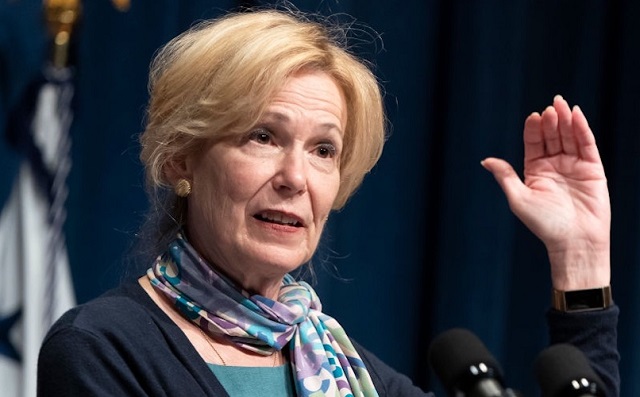
 COVID-192 days ago
COVID-192 days agoFormer COVID coordinator Deborah Birx now admits jabs could have injured ‘thousands’
-

 Opinion2 days ago
Opinion2 days agoCanada’s fertility, marriage rates plummet to record lows: report
-

 Uncategorized1 day ago
Uncategorized1 day agoRCMP recruitment failure has Alberta advocacy group calling for Provincial Police Service
-

 Health1 day ago
Health1 day agoPrivate Footage Reveals Leading Medical Org’s Efforts To ‘Normalize’ Gender Ideology
-

 Alberta23 hours ago
Alberta23 hours agoRed Deer Hospital Lottery – Second Chance Early Bird Prize!!!
-
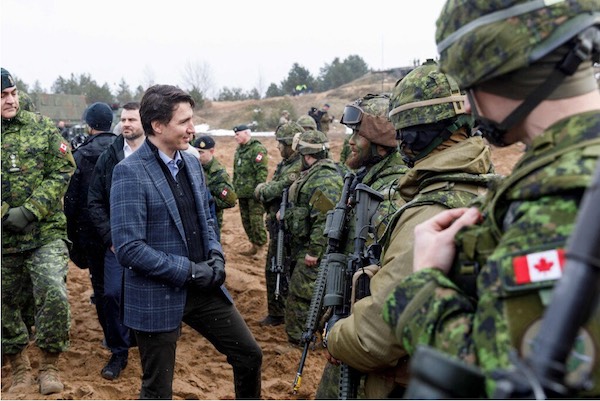
 armed forces23 hours ago
armed forces23 hours agoTrudeau government has spent $10 million promoting DEI in the military as recruitment flounders
-
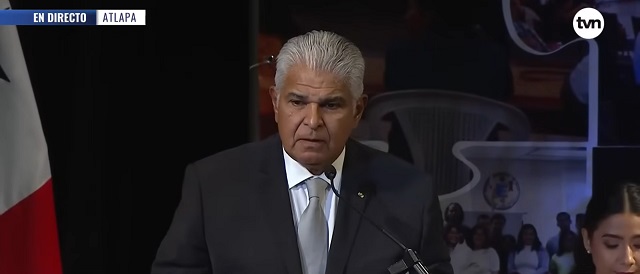
 illegal immigration2 days ago
illegal immigration2 days agoPanama’s Incoming President Wants To Shut Down His Country’s Most Treacherous Route For Migrants — But Will It Work?
-
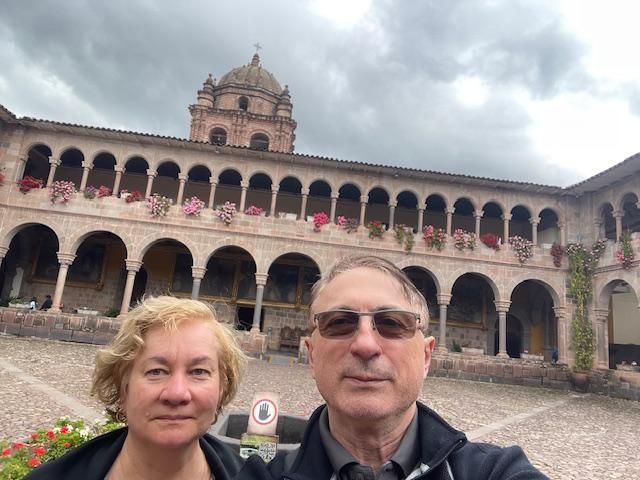
 COVID-1922 hours ago
COVID-1922 hours agoMore victories for freedom as ArriveCAN charges dropped and fines reduced

